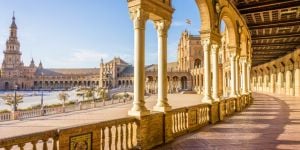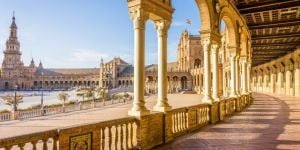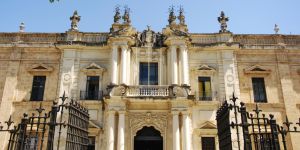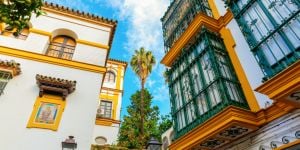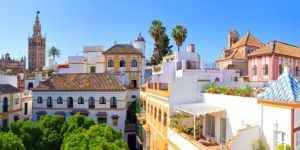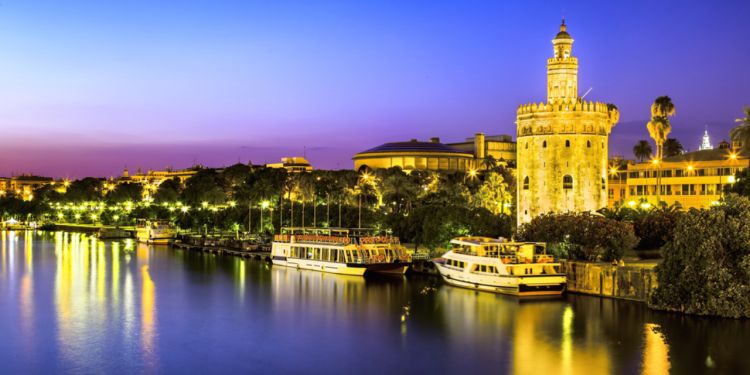
When you step off the plane or train to start your new life in Seville, most likely, you will feel a mixture of excitement and nervousness. You are, after all, embarking on a new life in a new city. You may never have been to the Andalusian capital before and only be equipped with a few words of Spanish, so you might feel like a fish out of water for a while. However, this feeling shouldn't last too long. Although your new home city has a different feel and character from the one you left behind, much will be familiar.
While Seville is a place with a rich cultural and traditional heritage and centuries-old architecture, it is also a modern and progressive European capital filled with stylish shops and restaurants and open to innovation.
Getting your bearings in Seville
One of Seville's biggest draws is its fantastic year-round climate. The city has a mean annual temperature of 19.2 °C and is one of the hottest places in continental Europe. During the peak summer months of July and August, the average daily highs can hover around 36°C. Meanwhile, during the winter, the average daily highs can be between 16°C and 18°C.
Once you have settled into your new home, you will probably want to explore your neighbourhood. You will definitely need to go out and stock up on provisions to keep you going for a few days. No matter the neighbourhood, you should find the following establishments within a short walking distance of your apartment or house: a small grocery store, a pharmacy, cafés, a bakery, a butcher, a general store selling household necessities, and a bank with an ATM.
During your first days in the city, scout around your locale to familiarise yourself with the shops, bars, restaurants and their opening times and to discover hidden gems. Before long, you will be part of the daily ebb and flow of Seville and will start living like a local. This means falling into a routine which will include starting your day in a local breakfast hangout.
Sevillians, like most Spanish people, are creatures of habit and will go to the same bar at the same time for their morning coffee and a tostada, a toasted slice with a topping such as tomatoes, olive oil, marmalade, or ham and cheese. The cost will only be a couple of euros.
The cost of living in Seville
One of the many factors to be considered when relocating to Seville is adjusting to its cost of living. The Andalusian capital is one of the most expensive cities to live in in Spain, although still cheaper than many European cities. Here is a lowdown of the sort of prices you can expect to pay.
The cost of accommodation in Seville naturally varies depending on where you choose to live. You can pay 500 to 700 euros a month or more for a one-bedroom apartment in central areas and around 400 euros for the same size property outside the city centre.
According to figures compiled by Numbeo, a crowdsourced global database, monthly costs for a four-person family, not including rent or a mortgage are 1,974.66 euros and for a single person, the monthly costs are 569.96 euros without rent or a mortgage. This figure is based on Numbeo's cost of living estimator which takes into account that people will eat lunch or dinner in restaurants 10% of the time, will have moderate alcohol consumption, will all be paying monthly public transport costs as well as other criteria.
Sample typical costs:
Grocery and eating out
A meal in an inexpensive restaurant - 10.00 € to 15.00 €
Meal for two in a mid-range restaurant - 30.00 € to 40.00 €
Regular coffee - 1.40 €
1 litre of milk - 0.70 €
1 kilogram of local cheese - 8.80 €
Mid-priced bottle of wine - 5.00 €
1 kilogram of apples - 1.73 €
1 kilogram of oranges - 1.13 €
Transportation
One-way bus ticket - 1.40 €
Monthly metro travelcard (one zone) - 30.00 €
Petrol (1 litre) - 1.30 €
Monthly Utilities
Electricity, heating, cooling, water and rubbish collection for a medium-sized apartment - 120.00 € to 150.00 €
We do our best to provide accurate and up to date information. However, if you have noticed any inaccuracies in this article, please let us know in the comments section below.
